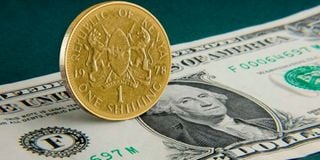Embracing economic diversity through free market currencies

The Kenyan shilling and the US dollar.
During some of Britain’s greatest financial difficulties in the ’70s, when inflation rose to double digits, one of the most distinguished economists of the last century, Friedrich Hayek, stated that there was a huge fundamental and systemic problem.
Since central committees that manage our money do not have all the necessary information, Hayek said, they will necessarily mismanage it and make wrong decisions despite their best intention. This, he added, leads to constant economic crisis.
His solution was the idea of free market money, whereby, instead of it being just one money issued by one body, there are many currencies issued by anyone who wants to.
This competition between currencies within an economic local would lead to the best form of money and to the greatest economic gains, Hayek said. Hence a myriad of individuals being closest to the decisions that most affect them, choosing what money to accept.
As such, instead of having just one currency, the dollar, within the United States, there would be 10, 100 or even thousands, depending on the market demand. States, towns or cities could have their own currency; even neighbourhoods within them might.
This theory, espoused 50 years ago, is now in action to some extent with thousands of digital currencies proliferating the global economy and the main ones having their own, albeit somewhat limited, ecosystem.
As one might expect, one currency might be mismanaged, a charge some levy towards bitcoin. Hayek’s suggestion was that individuals can simply freely move between currencies to the better managed one.
But is it that simple?
Ndabari Njenga, via email




